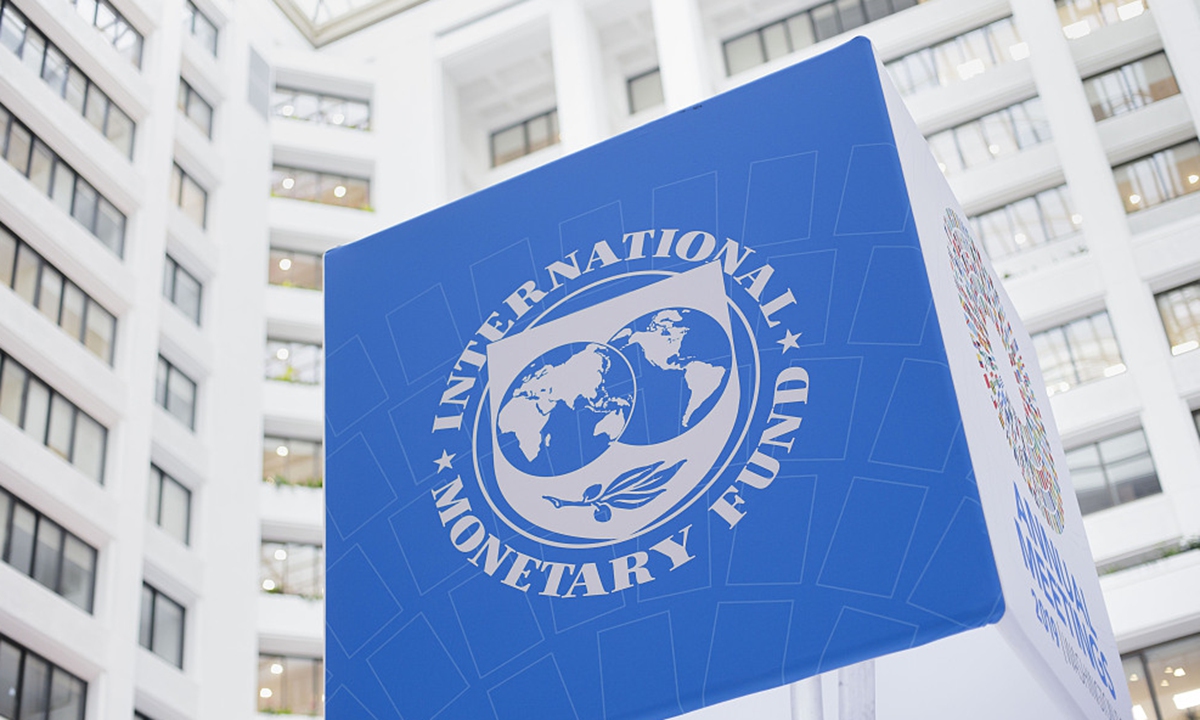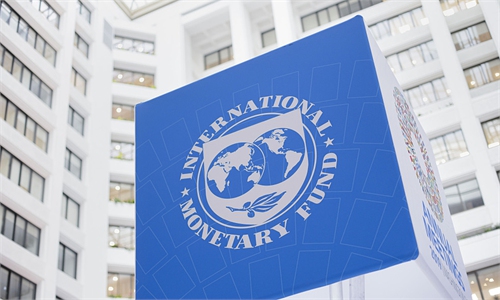Energy, high-tech decoupling estimated to cause 1.2% of global GDP losses: IMF Office in China

IMF Photo: VCG
Energy and high-tech decoupling among different countries is estimated to cause 1.2 percent of global GDP losses in a hypothetical case, Li Xin, deputy resident representative of the International Monetary Fund (IMF) in China said on Thursday, warning that all countries will suffer from geoeconomic fragmentation.
During a seminar on World Economic Outlook released by the IMF, Li said that due to the appropriate optimization and adjustment of China's anti-epidemic response, the country's optimism increased recently, which can be reflected in the rebound of transportation and retail, as well as the pick-up of manufacturing and services activities.
As the spread of the epidemic is likely to peak in China earlier than expected, which could help an earlier and faster rebound in mobility and private consumption, the IMF has raised its forecast of China's economic growth this year to 5.2 percent, Li noted.
However, global economic integration slowed over the past decade, while trade restrictions rose rapidly, Steven Alan Barnett, senior resident representative of IMF in China said during the seminar.
Li has the same opinion. He said that the world faces the growing risk of geoeconomic fragmentation with the increasing trade restrictions including goods, investment and services, adding that these restrictions will not only have a significant impact on the world economy both in short and long terms, but also hinder multilateral cooperation in the provision of global public goods by all parties.
Li said that in a hypothetical case, energy and high-tech decoupling among different countries is estimated to cause 1.2 percent of global GDP losses and 1.5 percent of GDP losses among Asia countries.
"We would advise countries to carefully consider the costs both at home and abroad of national security measures on trade and investment," Barnett noted.
"The IMF has always been a faithful advocate and practitioner of the globalization, and we have emphasized the use of multilateral approach to resolve differences and conflicts among countries," Li told the Global Times on Thursday.



